Filter by
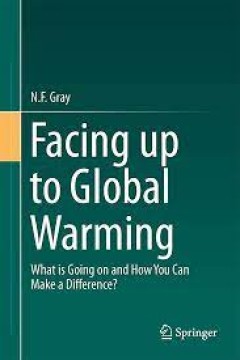
Facing Up to Global Warming What is Going on and How You Can Make a Difference?
In this volume, Professor N.F. Gray offers a comprehensive primer on climate change, sustainability, and how the two concepts are related. This book consists of fifteen chapters, each treating a specific aspect of the current global crisis, including scientific background as well as an up to date appraisal of the issue at hand. It covers the reasons behind climate change and the effect it will …
- Edition
- -
- ISBN/ISSN
- 978-3-319-20146-7
- Collation
- 28 b/w illustrations, 155 illustrations in colour
- Series Title
- -
- Call Number
- -
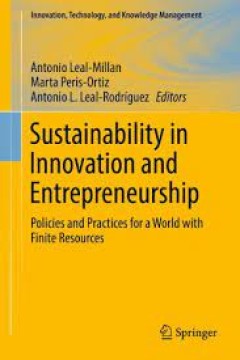
Sustainability, Innovation, and Entrepreneurship
This book is suited for the Entrepreneurship or Innovation course with an emphasis on Sustainability or for a course devoted entirely to Sustainability. What are the trends and forces underlying the changing character of the business-environment relationship? How they are creating significant entrepreneurial opportunities for individuals and companies? Around the world, the movement toward â…
- Edition
- -
- ISBN/ISSN
- -
- Collation
- -
- Series Title
- -
- Call Number
- 330 LAR s

Life Cycle and Sustainability of Abrasive Tools
This monograph focuses on abrasive tools for grinding, polishing, honing, and lapping operations. The book describes the life cycle of abrasive tools from raw material processing of abrasive grits and bonding, manufacturing of monolithic or multi-layered tools, tool use to tool end-of-life. Moreover, this work highlights sustainability challenges including economic, environmental, social and te…
- Edition
- -
- ISBN/ISSN
- 978-3-319-28346-3
- Collation
- -
- Series Title
- -
- Call Number
- -

Exploring Sustainable Behavior Structure in Higher Education A Socio-Psychol…
This book presents a social-psychology model delineating the factors that may influence in an altruistic manner sustainable behaviour (SB) of students, faculty and administrators in four higher education institutions (HEI) with very different economic and social characteristics. It presents the areas where these individuals work (education and community management), and in which of them educati…
- Edition
- -
- ISBN/ISSN
- 978-3-319-19393-9
- Collation
- 13 b/w illustrations
- Series Title
- -
- Call Number
- -
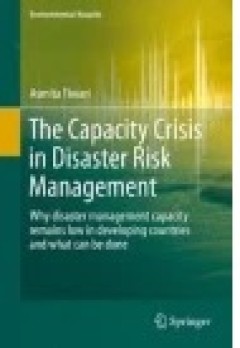
The Capacity Crisis in Disaster Risk Management
How can a place be built and managed so that it is safe for people to live? Ironically, many governments and citizens keep on asking the same question after every new disaster. Why, even with high levels of investment in increasing government’s capacity to manage disasters, do the impacts of disasters continue to increase? What can the governments do differently? What is the role of local com…
- Edition
- -
- ISBN/ISSN
- 978-3-319-09405-2
- Collation
- XVIII, 218
- Series Title
- Environmental Hazards
- Call Number
- -
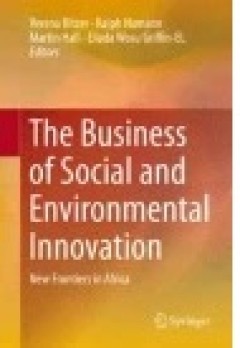
The Business of Social and Environmental Innovation
In the face of limited progress toward meeting Millennium Development Goals or addressing climate change and resource degradation, increasing attention turns to harnessing the entrepreneurial, innovative, managerial and financial capacities of business for improved social and environmental outcomes. A more proactive role for business in sustainable development is especially pertinent in sub-Sah…
- Edition
- -
- ISBN/ISSN
- 978-3-319-04051-6
- Collation
- XI, 235
- Series Title
- -
- Call Number
- -
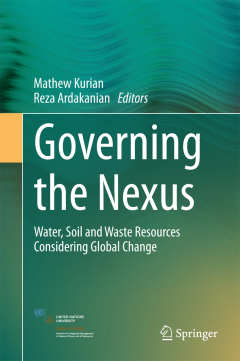
Governing the Nexus: Water, Soil and Waste Resources Considering Global Change
Global trends such as urbanization, demographic and climate change that are currently underway pose serious challenges to sustainable development and integrated resources management. The complex relations between demands, resource availability and quality and financial and physical constraints can be addressed by knowledge based policies and reform of professional practice. The nexus approach r…
- Edition
- -
- ISBN/ISSN
- 978-3-319-05746-0
- Collation
- XX, 230
- Series Title
- -
- Call Number
- 333.7 GOV
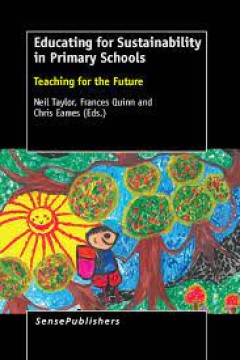
Educating for Sustainability in Primary Schools
Education for Sustainability is a key priority in today’s schools, as our society seeks to find a balance between environmental, social, cultural, political and economic imperatives that affect our future. As young children will become the next generation of adults, it is vital that they are educated about sustainability issues, so that they can learn to make informed decisions and take posit…
- Edition
- 1
- ISBN/ISSN
- 978-94-6300-046-8
- Collation
- -
- Series Title
- -
- Call Number
- X, 370
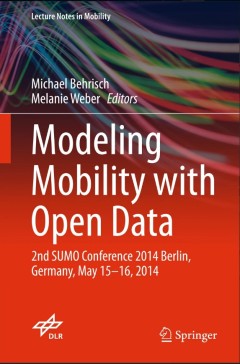
Modeling Mobility with Open Data: 2nd SUMO Conference 2014 Berlin, Germany, M…
This contributed volume contains the conference proceedings of the Simulation of Urban Mobility (SUMO) conference 2014, Berlin. The included research papers cover a wide range of topics in traffic planning and simulation, including open data, vehicular communication, e-mobility, urban mobility, multimodal traffic as well as usage approaches. The target audience primarily comprises researchers a…
- Edition
- 1
- ISBN/ISSN
- 978-3-319-36573-2
- Collation
- X
- Series Title
- Lecture Notes in Mobility
- Call Number
- -
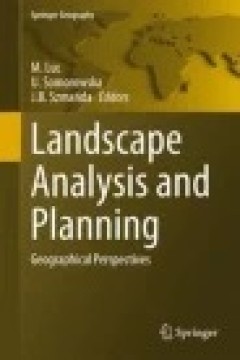
Landscape Analysis and Planning: Geographical Perspectives
This book presents recent advances in landscape analysis and landscape planning based on selected studies conducted in different parts of Europe. Included are methodological problems and case studies presented and discussed during scientific sessions organized by the Commission of Landscape Analysis and Landscape Planning of the International Geographical Union (IGU) within the framework of the…
- Edition
- -
- ISBN/ISSN
- 978-3-319-13527-4
- Collation
- -
- Series Title
- -
- Call Number
- -
 Computer Science, Information & General Works
Computer Science, Information & General Works  Philosophy & Psychology
Philosophy & Psychology  Religion
Religion  Social Sciences
Social Sciences  Language
Language  Pure Science
Pure Science  Applied Sciences
Applied Sciences  Art & Recreation
Art & Recreation  Literature
Literature  History & Geography
History & Geography